Table of Contents
ToggleIn a world where smartphones are practically an extension of our hands, educational app development has become the new frontier of learning. Imagine turning the mundane task of studying into an engaging adventure that fits right in your pocket. It’s not just about cramming facts; it’s about making knowledge stick like that last slice of pizza at a party—irresistible and unforgettable.
Developing an educational app isn’t just coding; it’s crafting a digital playground where curiosity thrives. With the right blend of fun and functionality, these apps can transform even the most reluctant learners into enthusiastic scholars. As technology evolves, the opportunity to create innovative, interactive learning experiences is ripe for the picking. So grab your virtual toolkit and get ready to dive into the exciting world of educational app development—where learning meets laughter, and every tap is a step toward enlightenment.
Overview of Educational App Development
Educational app development plays a crucial role in modern learning. It emphasizes creating tools that enhance knowledge retention and engagement. Developers focus on user experience to ensure these applications are intuitive and enjoyable. Interactive elements attract users, turning mundane study sessions into captivating experiences.
Technology serves as a foundation for these apps, paving the way for innovative teaching methods. Personalization features adapt content to meet individual learning styles, promoting better outcomes. Educators often collaborate with developers to incorporate curriculum standards into the design.
Statistics indicate that apps can significantly improve student performance. According to research, engaging apps lead to a 30% increase in information retention rates compared to traditional methods. Incorporating gamification further motivates learners, making educational pursuits feel rewarding.
Balancing aesthetics and functionality is essential in app development. Navigation should be seamless, allowing users to focus on learning rather than technical difficulties. Multimedia resources, including videos and quizzes, enrich the learning experience.
Accessibility remains a priority, ensuring all students, regardless of background, can benefit. Developers must adhere to global accessibility standards, enhancing usability for diverse populations. The integration of analytics helps track user engagement and progress, allowing for continuous improvement.
Overall, educational app development is an evolving field, merging technology with pedagogy to create impactful learning experiences. This synergy fosters a dynamic educational landscape, where knowledge becomes more approachable and fun.
Key Components of Successful Educational Apps
Successful educational apps rely on specific components that enhance user experience and learning outcomes. Developing these functionalities maximizes their effectiveness and engagement.
User Interface Design
User interface design plays a crucial role in educational apps. An intuitive layout allows users to navigate seamlessly, leading to a more enjoyable learning experience. Clear icons and organized menus reduce confusion and save time. Designers prioritize accessibility features to accommodate diverse learners. Moreover, incorporating responsive design ensures usability across various devices, fostering wider usage. Attractive visuals enhance user engagement without overshadowing functionality. Consistent feedback mechanisms, such as notifications for milestones, keep learners motivated throughout their journey.
Educational Content Quality
Educational content quality directly impacts user retention and satisfaction. High-quality information promotes understanding and retention, crucial for effective learning. Developers should ensure the content aligns with educational standards and learning objectives. Curated resources, including videos and interactive quizzes, enrich the learning experience. Furthermore, incorporating real-world examples fosters relatability and application of knowledge. Regular content updates maintain relevance and fresh perspectives. Ensuring content diversity caters to various learning styles and preferences, increasing overall effectiveness.
Challenges in Educational App Development
Educational app development faces several significant challenges that require careful consideration. Developers encounter various obstacles that can impact the effectiveness and success of their applications.
Technical Challenges
Technical challenges arise frequently during app development. Ensuring compatibility across multiple devices proves difficult. Developers also contend with security issues, particularly when handling sensitive user data. Incorporating interactive elements demands robust coding skills and can complicate the overall development process. Performance optimization plays a crucial role, as users expect fast and smooth experiences. Regular testing is essential to identify and fix bugs, which can otherwise hinder usability. Meeting the demands for high-quality multimedia resources requires significant attention to detail and investment.
Market Competition
Market competition in educational apps is fierce. Numerous apps exist, each vying for user attention and engagement. Developers must differentiate their products through unique features and innovative functionalities. Adapting to changing educational trends is vital to stay relevant. Research shows that engaging apps can boost information retention rates by 30%. Consequently, they need to prioritize user experience to achieve better retention. Marketing strategies also require ongoing evaluation to effectively reach target audiences. Balancing quality and affordability remains critical in attracting users to their app over competitors.
Future Trends in Educational App Development
Emerging technologies are reshaping educational app development. Artificial intelligence is increasingly utilized to personalize learning experiences. Such tailored approaches enhance engagement by adapting content to individual preferences. Developers focus on creating apps that offer real-time feedback, making learning more dynamic and interactive.
Virtual reality provides immersive experiences that deepen understanding. Advanced simulations engage users in environments that traditional methods cannot replicate. Many apps now integrate gamification elements, which maintain motivation and encourage competition among peers. Learners benefit significantly from these interactive modes, as studies suggest a 30% increase in information retention.
Mobile learning continues to gain momentum with widespread smartphone use. Accessibility features are not only essential but also a priority for developers. Ensuring apps meet global standards allows all students to benefit from innovative learning tools. Cloud integration facilitates seamless updates and access to resources from any location.
Data analytics offer valuable insights into user behavior. Trends indicate that tracking user engagement helps refine educational content and designs. Ongoing data assessment enables developers to understand which features resonate most with learners. Continuous improvement ensures that apps remain relevant and effective in meeting educational demands.
Collaboration with educators enhances app relevance. Gathering feedback from teachers and students leads to more effective educational tools. As demands shift, staying attuned to educational trends informs feature development and design choices. Developers prioritize the balance between aesthetics and functionality, ensuring that intuitive design captures user interest.
Progressive web apps are becoming a popular alternative to traditional ones. These apps provide offline access while maintaining versatility and functionality. Increased focus on security measures protects sensitive user information, fostering trust among users. Engagement strategies evolve as developers strive to create unique, impactful experiences that propel modern learning.
Conclusion
Educational app development stands at the forefront of modern learning, transforming traditional study methods into engaging experiences. By integrating innovative technologies and prioritizing user experience, developers create applications that not only enhance knowledge retention but also foster a love for learning.
As the landscape continues to evolve, the focus on accessibility and personalization ensures that all learners benefit from these tools. The challenges in this field are significant, yet the rewards of creating impactful educational experiences make it a worthwhile endeavor. Embracing new trends and technologies will lead to even greater advancements in how education is delivered and experienced.








